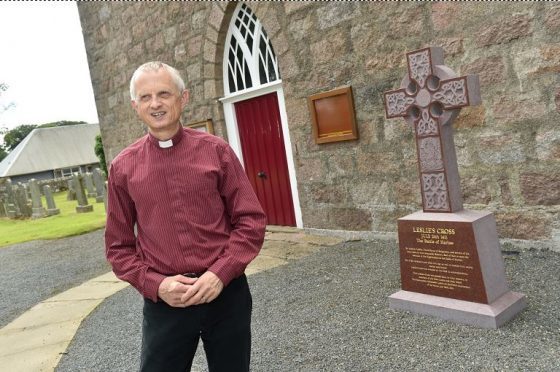History relates that the cries from the battlefield at the foot of Bennachie were so loud they could be heard for miles around, while the furious violence earned it the nickname “Red Harlaw”.
And tomorrow, a Garioch congregation will pay tribute to the men who fell at one of Scotland’s most legendary and hardest fought conflicts – 605 years on.
The story of the Battle of Harlaw – which saw some 10,000 invading Highlanders face off against no more than 2,000 hastily-assembled local troops – has been passed down from generation to generation.
And the Chapel of Garioch Church are holding a service of remembrance for those who lost their lives there on July 24, 1411.
Around 1,000 Highlanders and 600 north-east soldiers are reputed to have died at Harlaw, with the bloodshed ceasing at nightfall with no clear victor.
Donald, Lord of the Isles, had marched south with his troops after laying claim to the Earldom of Ross, but found himself face-to-face with an army of defiant north-east soldiers under the command of the Earl of Mar, Alexander Stewart, at Harlaw.
The local army, largely comprised of mounted knights, was made up of men from Aberdeen and local clans including the Irvines, Leslies, Keiths and Forbeses.
Reverend Martyn Sanders, of the Blairdaff and Chapel of Garioch Parish, said: “It is now the 605th year. I think the Leslie clan have a get together and a meal on the Saturday evening down in Inverurie and we have this service.
“The historians reckon there must have been about the current population of Inverurie involved in that battle, probably most of them actually with the Lord of the Isles from the West.
“The battle raged for most of the afternoon and evening. There were heavy losses on both sides. I don’t know of anybody who talks about anybody winning.
“Although it is 605 years ago, it is still real people. Sometimes we forget that there were widows and orphans. Children lost their dads.
“That sometimes happens when you are looking back over so many years; it becomes just a line in a history book.
“It makes you wonder: in 605 years time, what are children going to remember of what we have done in the world? Will they remember we have fought one another or remember that we took to building bridges?”
A place of worship in some guise would have stood at the site of the current kirk during the ancient hostilities.
Rev Sanders added: “They say the sounds of the battle would have been heard up here on Chapel of Garioch hill.”
